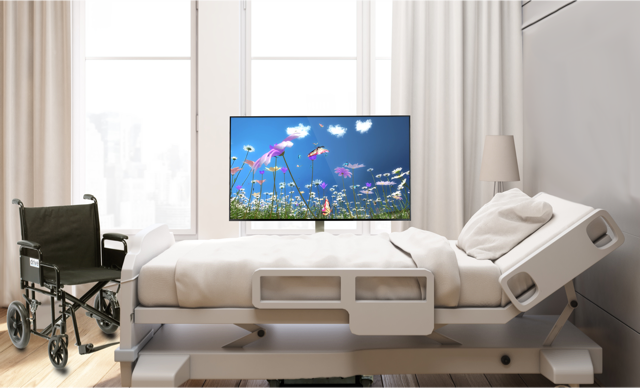
Agitation, confusion, and even hallucinations are all symptoms of a mental disturbance known as delirium, common among hospitalized patients. As many as 80% of critical care patients will show signs of delirium, which could last hours or even weeks. Some patients become withdrawn and less responsive, while others get restless and emotionally volatile.
“It can be very distressing for people because they see their loved one emerging from what might be a critical illness but acting differently,” notes Royal Columbian Hospital critical care physician Dr. Steve Reynolds. “To control delirium, we often are forced to give medications. And at worst, we actually have to tie people down so that they don’t hurt themselves, pull out IVs, or hurt the nurses or other medical staff.”
Factors thought to be associated with delirium include older age, severity of illness, lack of sunlight, disrupted sleep, and use of medications. Those are elements familiar to intensive care units.
Multimedia technology
Dr. Reynolds and CSICU nurse Michelle Nicholas, who is currently pursuing a PhD, are part of a research effort looking at innovative digital technologies such as MindfulGarden to manage delirium. Funded with help from donors to Royal Columbian Hospital Foundation, the goal is to reduce reliance on medications and restraints.
“It appeals to me as a clinician is because it’s a distraction technique,” says Dr. Reynolds. “I really like the fact that we’re trying to use an intervention that has very low downside.”

Dr. Steve Reynolds
For the trial, the team used an interactive multimedia screen with moving images of blooming flowers and floating butterflies. Sensors identify the patient’s agitation or anxiety levels and change the images on the screen accordingly.
“We’re pretty excited to say that we showed a significant reduction in patient agitation,” says Dr. Reynolds. “We also showed a significant reduction in antipsychotics.”
As a next step, Royal Columbian’s research group is in talks with other centres on a larger study.
“We want to see if it has really profound impacts on the patient’s stay, gets them out of ICU and hospital sooner, and makes their stay safer,” says Dr. Reynolds.
